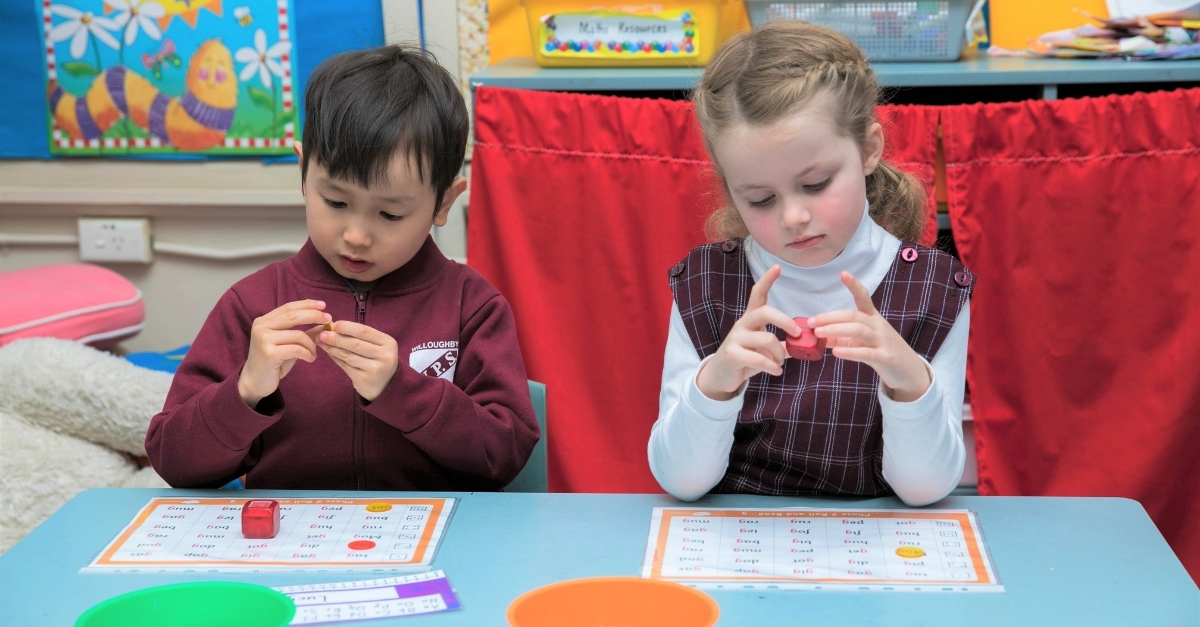The Question Ringing in Our Ears: Will Parents Heed the Senate's Warning?
October 6, 2017

What does it mean when, a Federal Inquiry that has spent just shy of a year investigating Australia’s hearing health, recommends that children should have their hearing tested at the start of school? One can only assume that there’s good cause for this recommendation, that it’s based on consultation with key opinion leaders, that it’s supported by research, and that it should indeed be put into action.
So what led the Inquiry to make this recommendation? It’s most likely because the impacts of undetected hearing problems on children are far-reaching.
On an individual level, the consequences of undetected hearing loss can result in delays in language development and delays in reading and understanding, which all impact learning and academic achievement. Research shows that 37% of children with minimal hearing loss are likely to fail at least one grade. Children with more severe undetected hearing loss face an even greater battle. Undetected hearing loss can also impact a child’s ability to socialise, make friends and participate in conversations. A child who can’t hear may struggle academically AND become socially isolated.
With all the demands our children face at the moment, the added pressure of not being able to hear may be the straw that breaks the camel’s back. A child who misbehaves may not be naughty or disobedient, they may just not be able to hear.
At a state or national level, the consequences of undetected hearing loss can impose significant costs to the education system, the health system, and in some cases even the justice system whereby an affected child grows up to be excluded from society (and the economy) due to the challenges they may have faced earlier on and may continue to face if their hearing loss has not been addressed. It is critical that even a mild loss is identified as quickly as possible to ensure all children have the opportunity to learn and grow.
BUT… I hear you say! Our babies have their hearing tested at birth! Well yes, they do, which is great BUT this test isn’t a guarantee of lifelong good hearing. The newborn test picks up babies born with moderate to profound hearing loss to ensure they get hearing aids or a cochlear implant as soon as possible. BUT the fact is that hearing loss can develop at any time. Data from Hearing Australia detailing when children get their first hearing aids shows that more children are fitted with hearing aids in the first three years of school than the number of children fitted at birth. Many of these children are likely to have missed much of those critical first years of learning.
Hearing aids are typically the solution for permanent or sensorineural hearing loss, which is the least common type of hearing loss. Conductive hearing loss, which is far more prevalent, and can be caused by a blockage in the ear (due to fluid or wax) may require surgery to correct the problem. You’ve likely heard of glue ear and grommets. Glue ear can cause hearing loss that will impact a child in the same way as a permanent hearing loss so it’s just as important to detect and treat.
There are also brain-based hearing issues that mean some children can hear in quiet but they can’t hear in noisy environments, like classrooms! The brain is involved in the hearing process and sometimes it doesn’t work properly but it can be retrained if the problem is detected.
The classroom environment can be especially challenging for a child who suffers from hearing loss. Tell-tale signs include inattentiveness, trouble following directions, inappropriate responses and loudness. While a child with hearing loss might develop coping strategies (like lip-reading) that work in the quiet home environment these strategies are unlikely to work in the classroom and noisy playground.
And it’s for this reason that it’s imperative our children are offered a hearing test around the time they start school. But how can we screen for hearing loss without it costing the country a fortune? With technology!
Technology can now provide cost-effective solutions to enable screening at scale. Schools can equip themselves with reliable, evidence-based screening tools to minimize the consequences of undetected hearing loss in children. For example, Catholic schools in western Victoria have adopted Sound Scouts as a preliminary hearing screening tool for their students. Initially only used in remote areas to determine if a student needed to travel the long distance to see an audiologist the App, having proven itself to be cost-effective and reliable, has now been widely adopted as a part of the “student referral process”, supporting schools to efficiently complete the necessary hearing assessment requirements.
There’s no denying the lifelong impact of undetected hearing loss on our children. The Senate Inquiry has looked at the evidence and has made the recommendation that our children should have their hearing tested around the time they start school, the solution to do this cost-effectively is now available so what are we waiting for?
Australia it’s time to make a change! Let’s use technology to its best advantage and ensure our children can HEAR.
Click here to download and play Sound Scouts.

